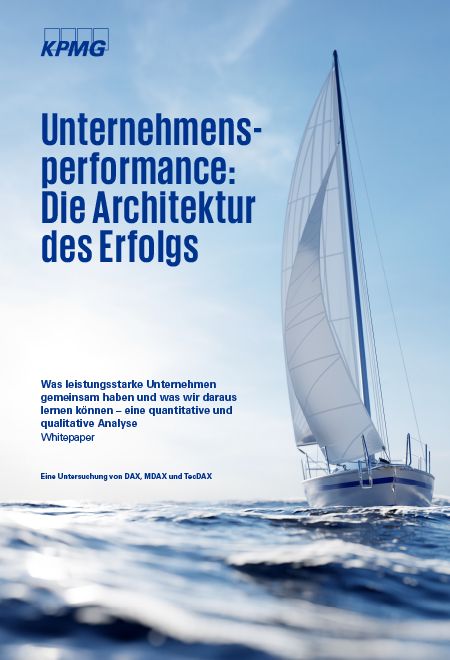Looking back, more has changed for companies in the years 2019 to 2024 than has been the case for a long time: customer expectations have been redefined by the coronavirus pandemic, some supply chains have had to be reorganised in light of geopolitical tensions and energy policy upheavals, and technological conditions have also changed rapidly due to the widespread use of artificial intelligence.
In the white paper "Board structures and company performance - a quantitative and qualitative analysis of DAX, MDAX and SDAX1", you can find out how DAX, MDAX and TecDAX companies have adapted their operating profitability and management models in these challenging years in order to remain competitive. Based on the average EBITDA margin and its volatility, we trace the profitability profile of the retail, consumer goods and media sector, the telecommunications and IT sector, the automotive and industrial sector as well as the chemical and pharmaceutical sector and at the same time analyse the structure of their management boards - from the number of departments and committees to specialised management functions.
Three key findings
1. High-margin innovation leaders vs. commodity-dependent heavyweights
IT, chemicals and pharmaceuticals achieved average EBITDA margins of over 20 per cent, supported by scalable business models and patent monopolies, while commodity-dependent sectors such as industrial goods production were confronted with greater fluctuations.
2. Board structures are undergoing change
A quarter of all companies are integrating geographical responsibility into the Executive Board (e.g. "CEO Asia-Pacific") in order to manage growth markets directly.
3. Investment in personnel and process optimisation as a resilience factor
Higher personnel costs in technology-intensive sectors do not necessarily correlate with lower profitability. On the contrary: top-margin companies invest in highly qualified specialists and automation.
Turning knowledge into action together
In light of these findings, KPMG's Elevate approach directly addresses the challenges identified.
Contact us if you would like to use this modular, data-driven transformation toolkit for your company to systematically improve your margin and organisational stability. You can find more information in the whitepaper.
Your contact persons
Tobias Ahnfeld
Senior Manager, Advisory, Performance & Strategy, Enterprise Performance
KPMG AG Wirtschaftsprüfungsgesellschaft
Frédéric Pirker
Partner, Performance & Strategy, Enterprise Performance
KPMG AG Wirtschaftsprüfungsgesellschaft
Dr. Tim Berger
Partner, Performance & Strategy, Enterprise Performance
KPMG AG Wirtschaftsprüfungsgesellschaft
Jan Rüther
Partner, Performance & Strategy, Enterprise Performance
KPMG AG Wirtschaftsprüfungsgesellschaft


